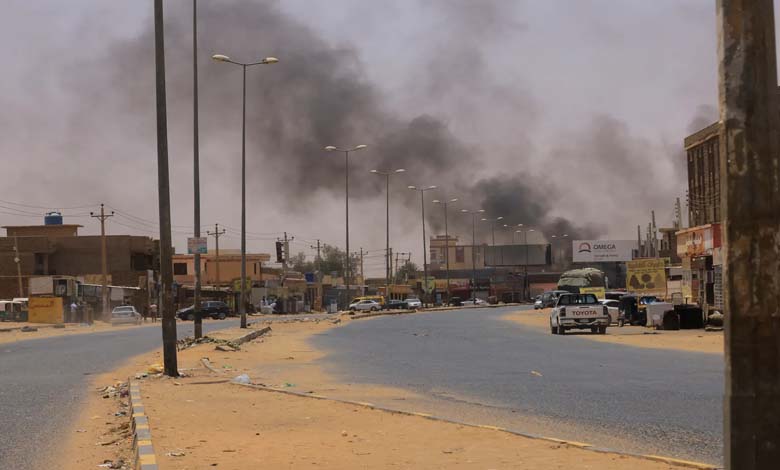Drone strikes hit Al-Jaili refinery and Wadi Sayyidna base: newly appointed military security chief killed

On Tuesday, September 9, 2025, Sudan witnessed a dangerous escalation in drone warfare, with coordinated strikes targeting key oil and military facilities in Khartoum and Omdurman. The attacks signal a direct threat to the country’s vital infrastructure and coincided with the death of Major General Abu Obeida Fadlallah Ibrahim, the newly appointed head of military security and deputy director of military intelligence, who was killed in a separate strike on military security headquarters in Kafouri.
-
Khartoum rejects the British resolution on Sudan
-
Sudan Conflict Claims New Civilian Victims… Bus Station Bombing in Khartoum
Al-Jaili refinery: the country’s energy lifeline under attack
Local sources confirmed that eight drones carried out a direct assault on the Al-Jaili oil refinery, north of Khartoum. The attack raised serious concerns over the stability of one of Sudan’s most critical fuel supply hubs. Management quickly evacuated all workers as a precautionary measure, reporting no casualties.
This marks the most serious strike since the outbreak of the conflict, as the refinery is considered the backbone of Sudan’s refined fuel and energy supply. Any prolonged disruption could trigger a severe fuel shortage and widespread electricity outages across the country.
-
Erasing Cultural Identity: Sudan’s turmoil targets Khartoum’s Historical Landmarks
-
Sudanese Support Forces Control Um Ruwaba as Fighting Intensifies in Khartoum
Omdurman under fire and the death of General Abu Obeida
Simultaneously, Omdurman came under drone attacks that targeted the strategic Wadi Sayyidna airbase and the Marakhiyat power station to the north. Military sources reported that air defenses intercepted much of the assault, preventing large-scale damage.
In a parallel development, a suicide drone strike hit the military security headquarters in Kafouri, killing Major General Abu Obeida and injuring eight senior officers. His death, coming only weeks after his appointment as part of a new security restructuring, is widely seen as a major blow to Sudan’s military establishment.
-
Sudanese army kills 40 civilians in bombing of market in South Khartoum
-
The Economic Situation Collapses in Sudan… War Plunges Khartoum into Major Crises Khartoum has entered a major crisis
Broader implications: a systemic threat
This wave of drone strikes illustrates a troubling shift in the conflict. The targeting of oil refineries, airbases, and military leadership simultaneously points to a deliberate strategy to cripple Sudan’s resilience on multiple levels: economic, energy, and security.
Analysts warn that continued strikes against such strategic assets could push the country into deeper economic turmoil, aggravate service disruptions, and erode the military’s command structure. By combining symbolic assassinations with attacks on energy lifelines, the assailants appear intent on accelerating the breakdown of Sudan’s capacity to withstand the ongoing war.
-
The Sudanese War… A continuous threat to the medical situation in Khartoum
-
After the ceasefire ended, clashes resume in Khartoum once again, threatening hopes for calm
-
The Sudanese situation worsens… Warring parties fight over weapon and fuel depots in Khartoum
-
Khartoum bids farewell to foreigners – Evacuation map
-
Mass displacement as Sudanese flee from the deadly clashes in Khartoum












